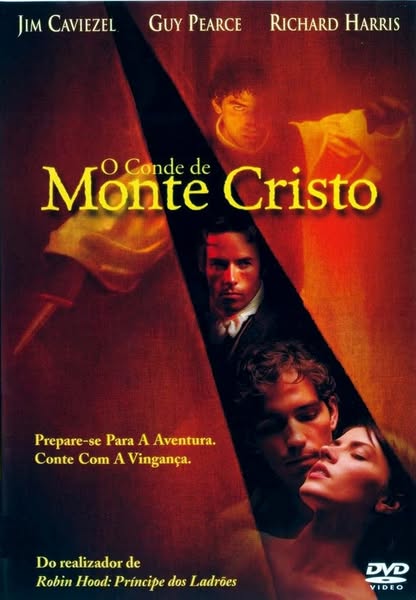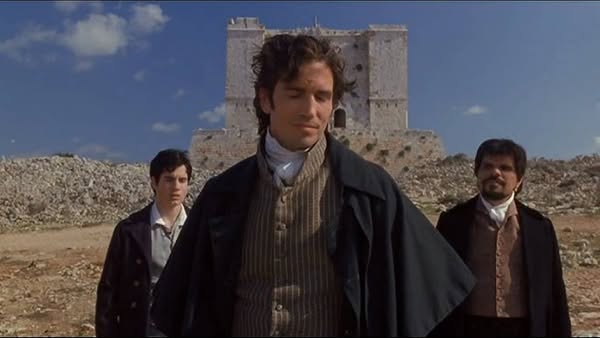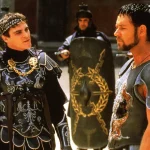The Count of Monte Cristo (2002)

The Count of Monte Cristo is a 2002 adventure drama film directed by Kevin Reynolds, based on the classic novel by Alexandre Dumas. The film features a stellar cast, including Jim Caviezel as Edmond Dantès, Guy Pearce as Fernand Mondego, and Richard Harris as Abbé Faria. It presents a timeless tale of betrayal, revenge, and redemption, resonating with themes of justice and the human spirit.
The story follows Edmond Dantès, a young and promising sailor who is wrongfully imprisoned due to the jealousy and treachery of those around him. Betrayed by his closest friends, including Fernand, who desires Edmond’s fiancée, Mercedes (played by Dagmara Domińczyk), Dantès is cast into the dark confines of the Château d’If. During his years in prison, he meets Abbé Faria, an imprisoned priest who educates him and reveals the location of a hidden treasure on the island of Monte Cristo.

After escaping from prison, Dantès retrieves the treasure and transforms himself into the wealthy Count of Monte Cristo. With his newfound wealth and identity, he meticulously plots his revenge against those who betrayed him. The film skillfully navigates Dantès’ transformation from an innocent victim to a calculating avenger, exploring the moral complexities of revenge and forgiveness.
Jim Caviezel delivers a powerful performance, capturing Dantès’ emotional journey as he grapples with his desire for vengeance and the consequences of his actions. Guy Pearce effectively portrays the ambitious Fernand, whose jealousy drives much of the conflict in the story. The supporting cast, including Harris as the wise Abbé Faria, adds depth to the narrative, providing guidance and wisdom to Dantès during his darkest moments.

The film’s cinematography beautifully captures the lush landscapes of 19th-century France and the Mediterranean, enhancing the epic nature of the story. The action sequences are well-executed, blending drama and adventure in a way that keeps audiences engaged. The score, composed by Edward Shearmur, complements the film’s emotional depth and heightens the tension during key moments.
The Count of Monte Cristo explores profound themes of betrayal, justice, and the quest for redemption. It raises questions about the nature of revenge, the impact of wealth and power, and the possibility of forgiveness. Dantès’ journey serves as a cautionary tale about the dangers of allowing vengeance to consume one’s life, ultimately leading to a powerful conclusion that emphasizes the importance of compassion and understanding.

Upon its release, the film received positive reviews for its faithful adaptation of Dumas’ novel and its engaging performances. While it may not capture every nuance of the original text, it successfully conveys the essence of the story, making it accessible to a modern audience.
In conclusion, The Count of Monte Cristo is a captivating adaptation that brings Alexandre Dumas’ classic tale to life with powerful performances, stunning visuals, and a rich narrative. It serves as a timeless exploration of human emotions, reminding viewers of the complexities of betrayal, revenge, and the enduring search for redemption. This film stands as a testament to the enduring power of storytelling, resonating with audiences across generations.











